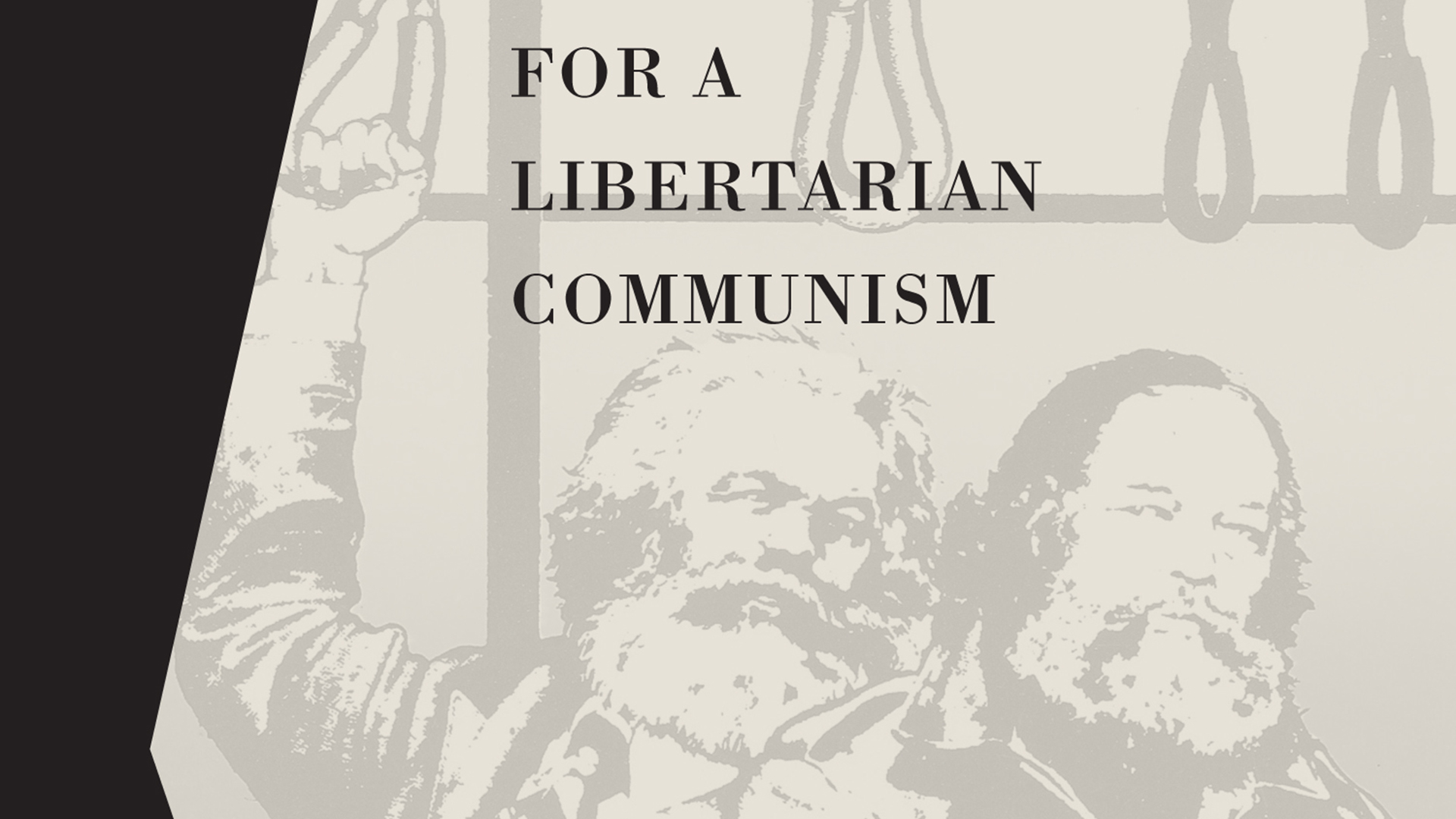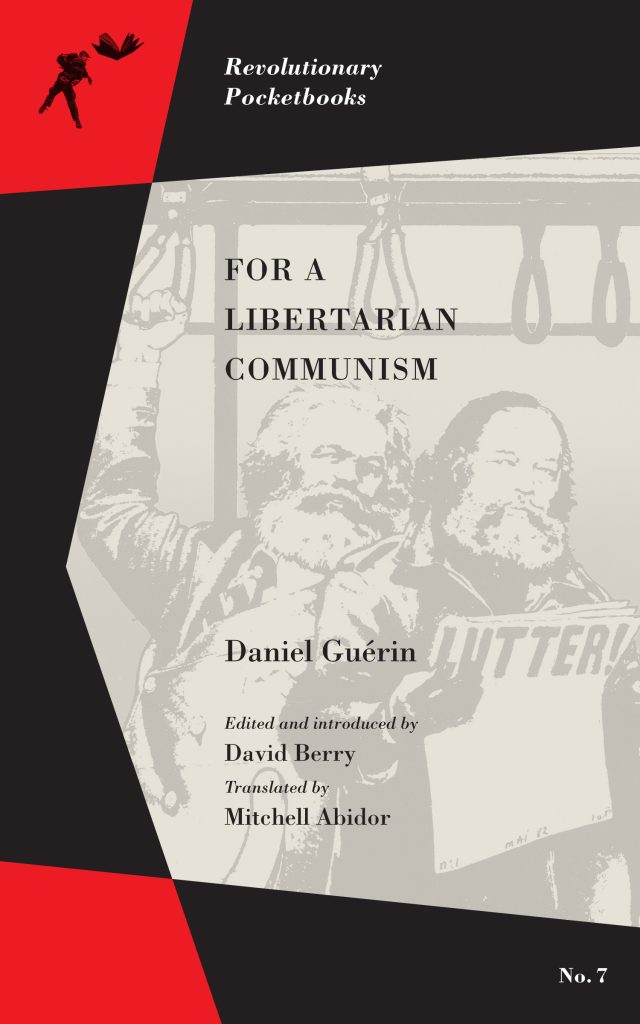By Wayne Price
Anarchist Studies
2019
English-speaking anarchists are most likely to know Daniel Guerin for his book, Anarchism (1970) and his anthology, No Gods No Masters (1998). This little book, however, is a selection of his writings on the topic of working toward an integra-tion of anarchism and Marxism (The cover has a picture of Marx looking over Bakunin’s shoulder as he reads a left newspaper.)The Marxists have turned their backs on me as an anarchist, and the anarchists, because of my Marxism, have not always wanted to view me as one of them … I believe in both the need for and practicality of a synthesis between Marxism and anarchism (p39).At various times he called his approach ‘libertarian socialism’, ‘libertarian commu-nism’, or ‘libertarian Marxism’.
When he called himself a ‘libertarian Marxist’, it was not primarily a reference to the minority antistatist-autonomous trend in Marxism. Rather he meant that he was a Marxist socialist who was open to learning from anarchism. Some of us approach the issue of a possible ‘synthesis’ from the other direction: as anarchists who are open to learning from Marxism. For us, Guerin has much to say.The life of Daniel Guerin (1904–1988) is described in an excellent introduc-tion by David Berry. In the 1930s Guerin joined the revolutionary wing of the French socialist movement. During World War II, he joined the Trotskyist under-ground. After the war he became disillusioned with Trotskyism. In the post-war period he became prominent as an opponent of the French-Algerian war and as a supporter of the Algerian people –without endorsing the nationalist programmes of their leaders. As a Gay activist, he was regarded as the ‘grandfather’ of LGBT liberation in France. In the ’50s, Guerin ‘discovered’ anarchism. He found Bakunin’s writings to be a ‘revelation’. He was deeply impressed by Proudhon’s advocacy of worker self-management and federalism. ‘The future belongs to the autonomous management of enterprises by associations of workers’, federated together (p77). As a Gay man, he even valued Stirner’s individualist-egoist anarchism, for Stirner’s rejection of moralism and puritanism. However he was primarily in sympathy with the tradition of revolutionary class-struggle anarchist-communism – the kind of anarchism which had most in common with libertarian-autonomous Marxism. He sought ‘a synthesis … between the two equally fertile schools of thought: that of Marx and Engels and that of Proudhon and Bakunin’ (p43). Like Marx and Bakunin, he believed in the possibility (not inevitability) of a revolution by workers and all the oppressed, as demonstrated by the May 1968 near-revolution in France.Guerin regarded Marxism as having both libertarian-humanist and author-itarian-centralist sides. There was Marx’s analysis of alienation under capitalism; his insistence that the emancipation of the working class must be conquered by the working class itself; his radically democratic analysis of the Paris Commune; his historical materialism; and his analysis of how capitalism works. On the other hand, there was an authoritarian ‘Jacobin’ trend in Marx’s Marxism, which had been further developed by Lenin. Marx’s programme for taking state power, through elections or revolutions, and then nationalising industry, led to state capitalism (as Bakunin had warned). Marx’s historical materialism and his political economy could be, and usually were, interpreted in a mechanistic manner, leading to authoritarian conclu-sions. Marx’s expulsion of the Bakuninists from the First International had been an historical disaster. In the ’70s, Guerin became an enthusiast for Rosa Luxemburg, whose life and writings fit the libertarian socialist synthesis he believed in. Many anti-authoritarian radicals are woodenly sectarian. Daniel Guerin, however, was willing to work with almost anyone on the Left. While gener-ally rejecting the Marxist strategy of participating in elections, he was in favour of working inside labour unions and was in solidarity with national liberation struggles. At all times, his revolutionary goal was a cooperative federation of self-managed industries and communities. This booklet is the perfect place to begin to explore Guerin’s libertarian communism.
Back to Daniel Guérin’s Author Page | Back to David Berry’s Author Page | Back to Mitchell Abidor’s Author Page







